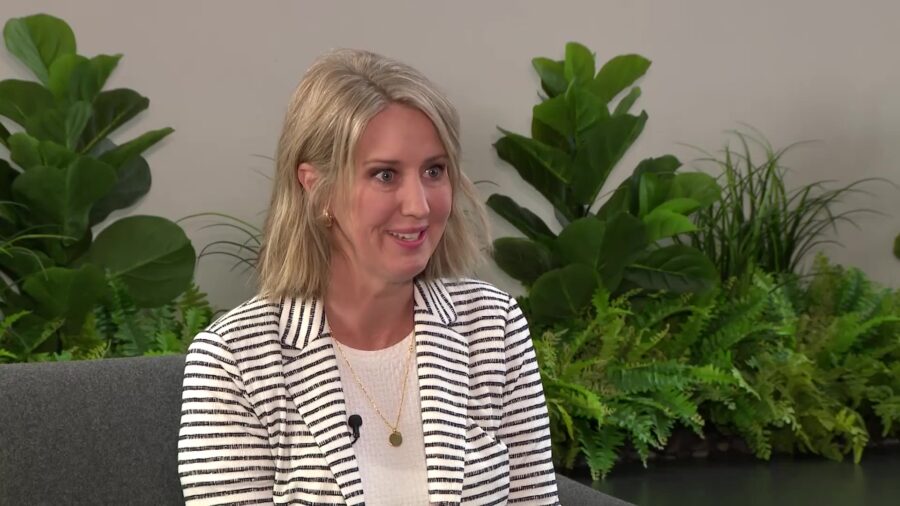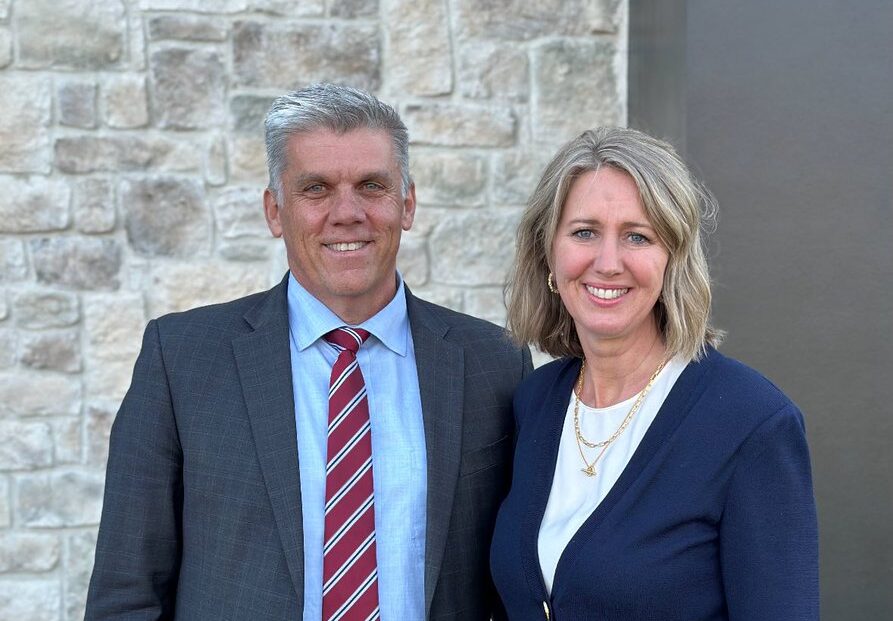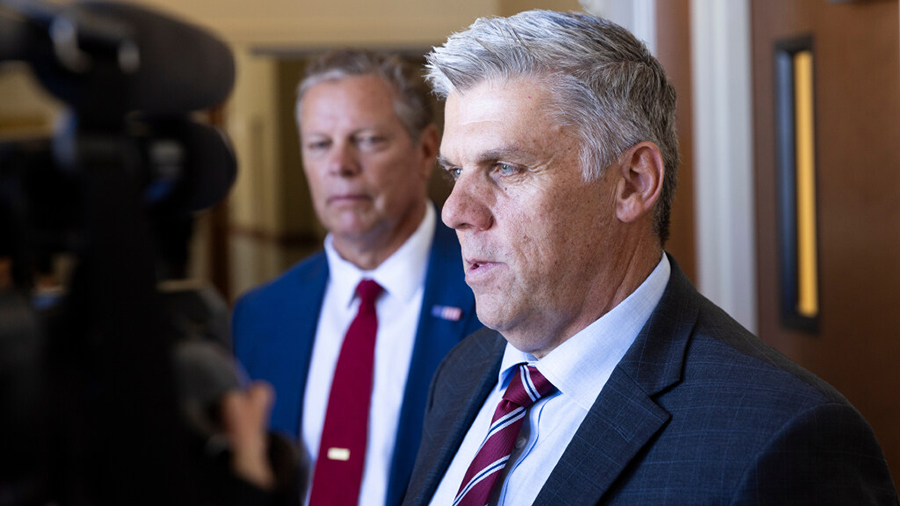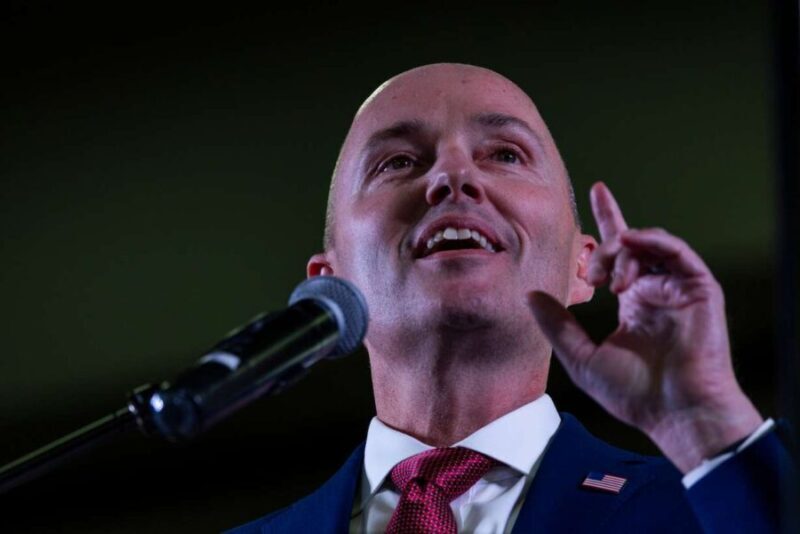Utah congresswoman reintroduces Daylight Act, would allow states to choose permanent daylight saving time
Mar 11, 2024, 6:20 PM | Updated: Mar 12, 2024, 7:15 am
SALT LAKE CITY — After Utahns awoke Sunday morning to an hour less of sleep, Utah Rep. Celeste Maloy announced Monday she is reintroducing the Daylight Act in an effort to allow Utahns to keep their clocks set for good.
The Daylight Act would allow states to decide to make daylight saving time permanent.
“Right now, states can stay on standard time, but they don’t have the option of staying on daylight saving time, so this bill would give states the option,” Maloy said.
She cited studies that she said show how year-round daylight saving time could benefit residents’ health and the economy.
The studies included findings that have shown an increase in heart attacks, strokes, workplace injuries, and depression following the spring-forward change. An American Economic Journal study found that from 2002 to 2011, the time change caused over 30 deaths. Maloy also cited a JP Morgan Chase study in Los Angeles, which reported an increase in consumer spending at the start of the time change.
“Some of the statistics I’ve seen are that traffic deaths increase right after we change our clocks, that kids get sick more often right after we change our clocks, and that crime increases after we change the clocks,” she said. “It just throws people off.”
Some Utahns KSL TV spoke with felt differently or were ambivalent about legislation that would change the time zone.
“I could take it or leave it,” Tanner Adamson said. “I can’t see it having too much of an effect if everyone’s used to it. I think the biggest thing with the current system is knowing when it’s going to change and accounting for it.”
He and others said, inevitably, people forget about the time change every fall and spring.
“I’ve been late to work a couple of times,” Adamson said.
Alpha Coffee owner Carl Churchill said his business sees a bump in sales the day the time springs forward each year.
“Every year daylight savings time brings people in by their busload,” he said. “We have long lines, people opting for a 20-ounce drink, an extra shot. It’s crazy.”
He said even though the loss of sleep benefits his business, he’d rather keep things consistent.
“I don’t know which one is better, but I just say let’s just pick one and stick with it,” said Churchill.
Customer Tom Hollinger said he’s experienced a permanent switch to daylight saving time. He said the U.S. experimented with it when he was a child.
“I was in school. It was a little tough because I was in Illinois and it was dark in the morning when you went to school. Of course, the good thing was there was light when you left school. But it was dark,” he said.
KSL TV has reported on multiple bills that attempted to achieve similar goals as the Daylight Act, including one that made it to former Gov. Gary Herbert’s desk and still ultimately failed. Another attempt was made in 2022, which didn’t pass the Senate vote.
In 2020, Utah passed a law that would make daylight saving time permanent if at least four neighboring states agree to do the same; Colorado, Idaho, Montana, Oregon, Washington and Wyoming have passed legislation to make that happen, according to the National Conference of State Legislatures. California voters authorized the change in a 2018 vote, but state lawmakers have yet to pass legislation to adopt the change.
It’s ultimately up to Congress to complete the change. Maloy said the Senate’s passage of the Sunshine Protection Act makes her feel optimistic about the Daylight Act’s chances of getting passed.
“I think we could get used to the idea that days are shorter in the winter and longer in the summer without changing our clocks,” she said. “Originally, daylight saving time was supposed to be a way of saving fuel, saving energy by having people get up closer to when the sun comes up and going to bed closer to when the sun goes down. We don’t really live like that.”
Hollinger, who is an avid skier, said a later sunrise could impact time on the slopes.
“It probably would do away with the 8 o’clock starts,” he said.
Maloy said that while she thinks Americans can adjust to darker mornings, her legislation allows each state to have a choice in the matter.
“If the ski industry doesn’t like the idea, they can go lobby the state for the interest — that is a big interest in Utah — and get the state to make whatever decision is best for the people of Utah. What I’m doing is giving the state that option. Right now, they can’t make the choice because of a federal law.”
Another Alpha Coffee customer, Jake Kimball, said he’s in favor of keeping daylight saving time year-round.
“I think it’s a pretty arcane system,” he said. “I would be an advocate for that.”
He said he doesn’t think the difference would have a huge impact on himself, or the people he knows. Kimball said it’s all a matter of how lawmakers prioritize the legislation and how they present it.
“In our current political climate, everyone’s looking for a reason to become polarized in one direction or the other, but I could see it happening,” he said.













